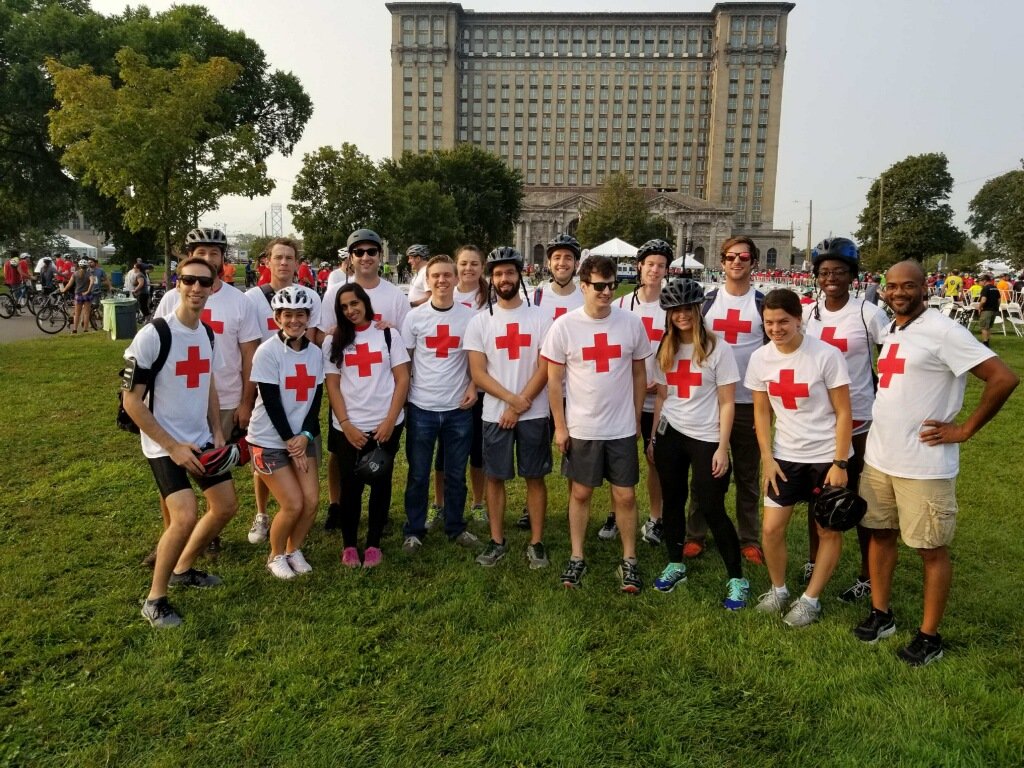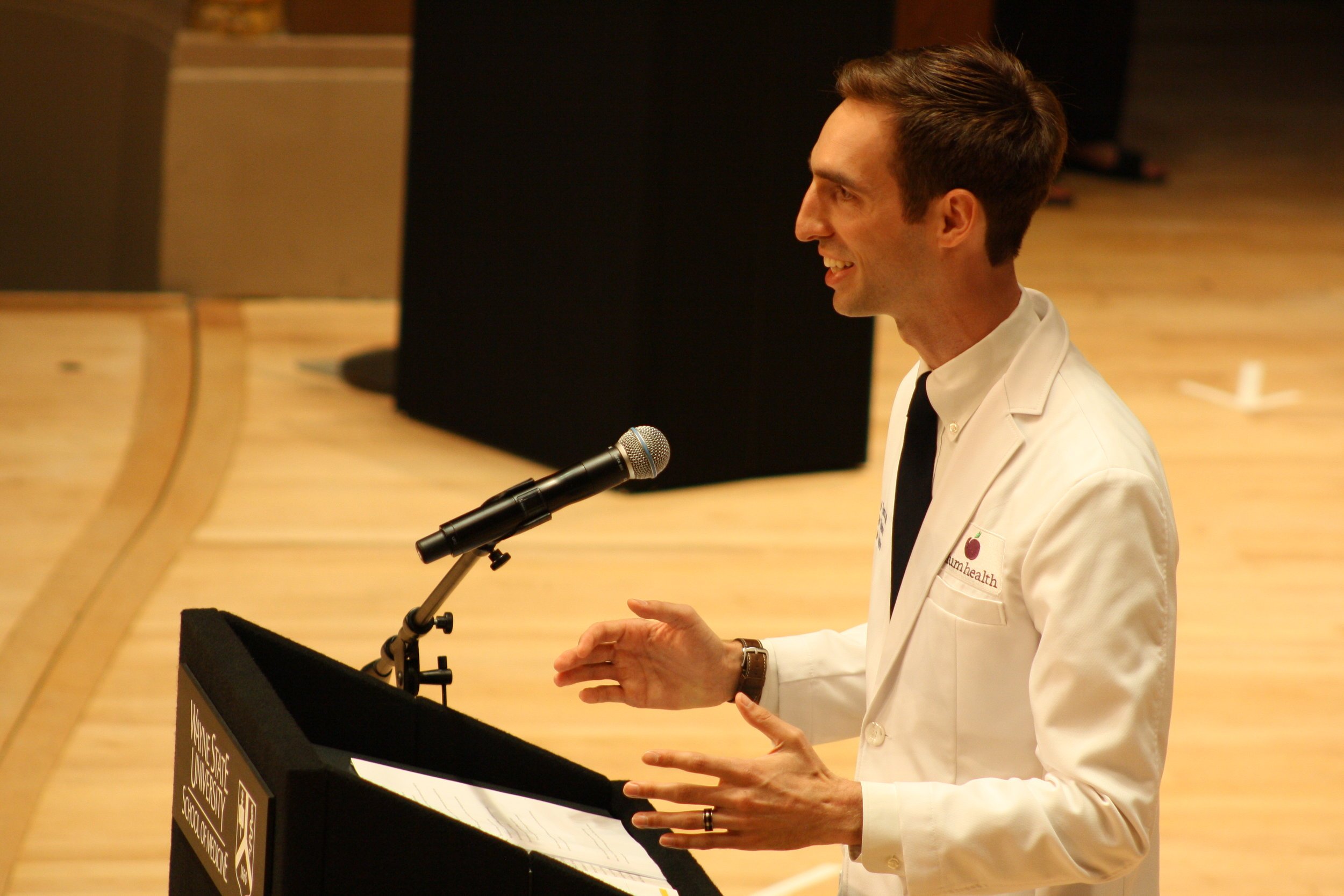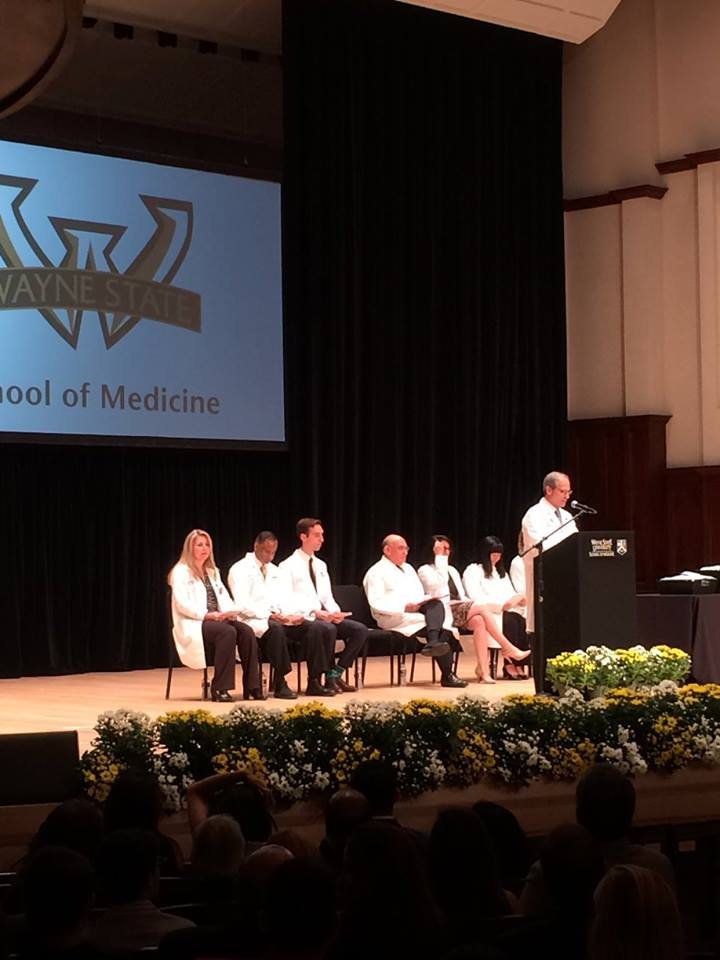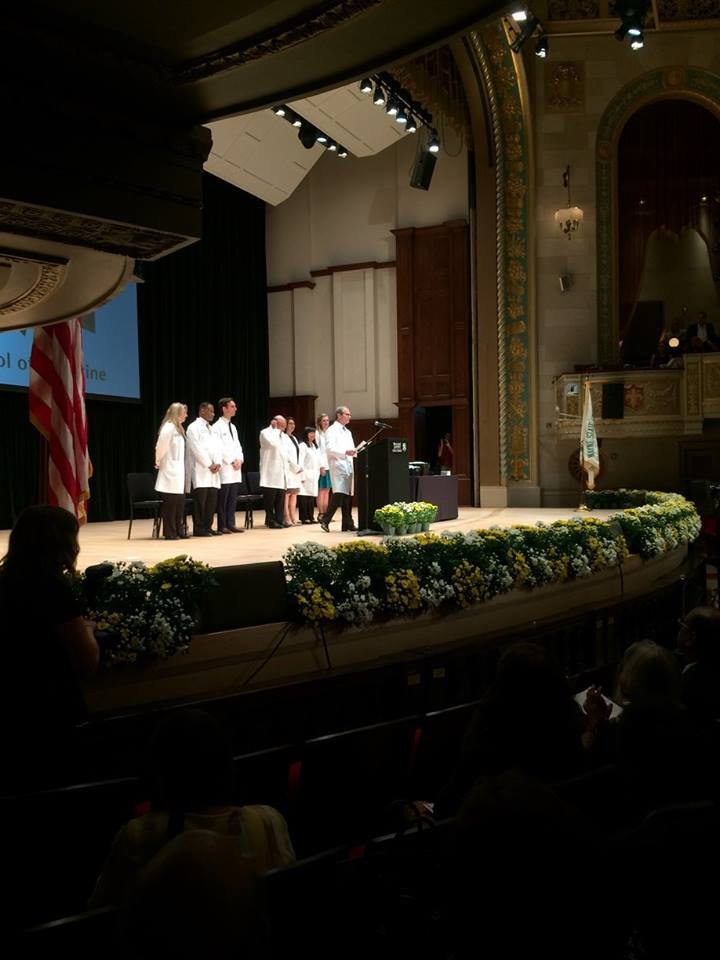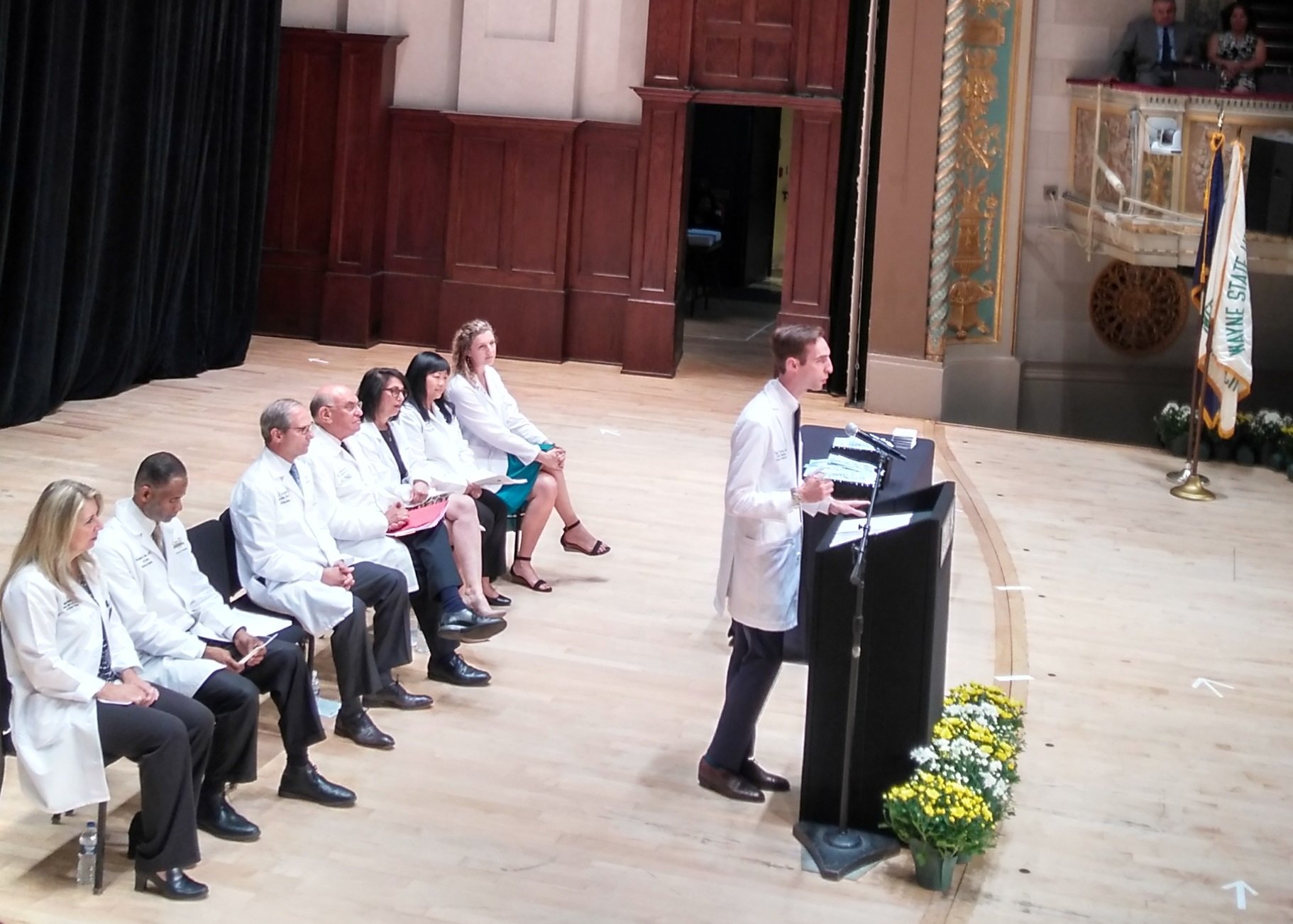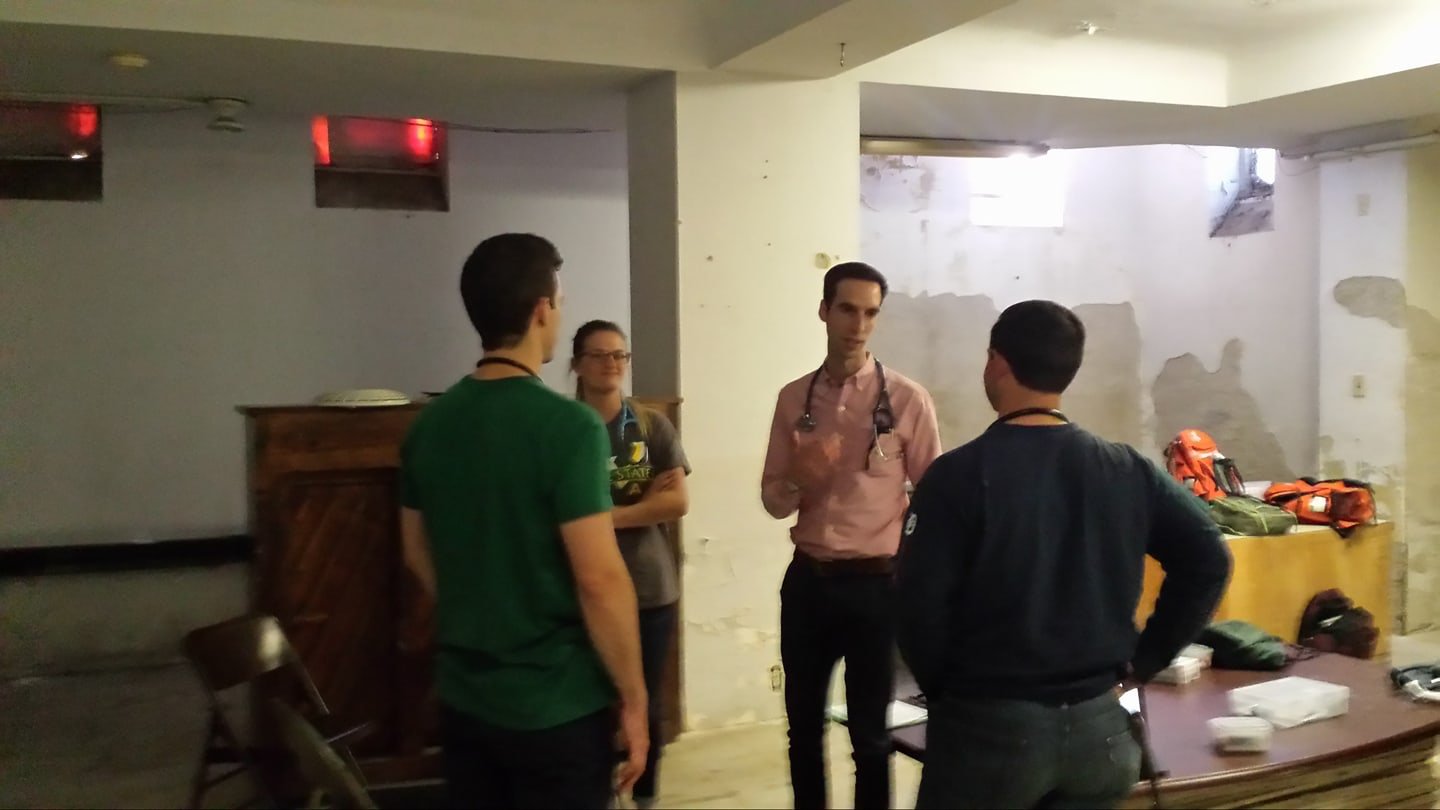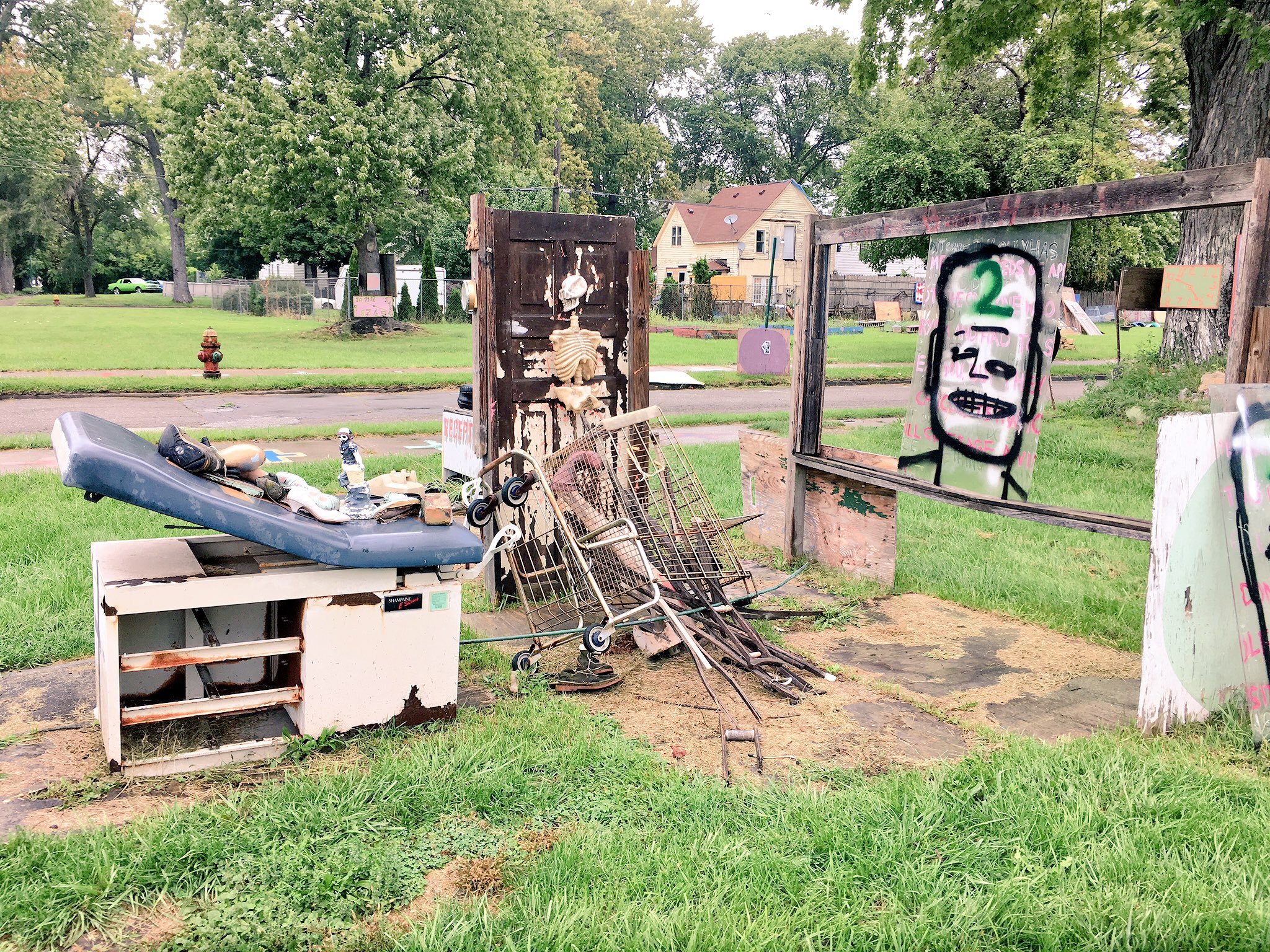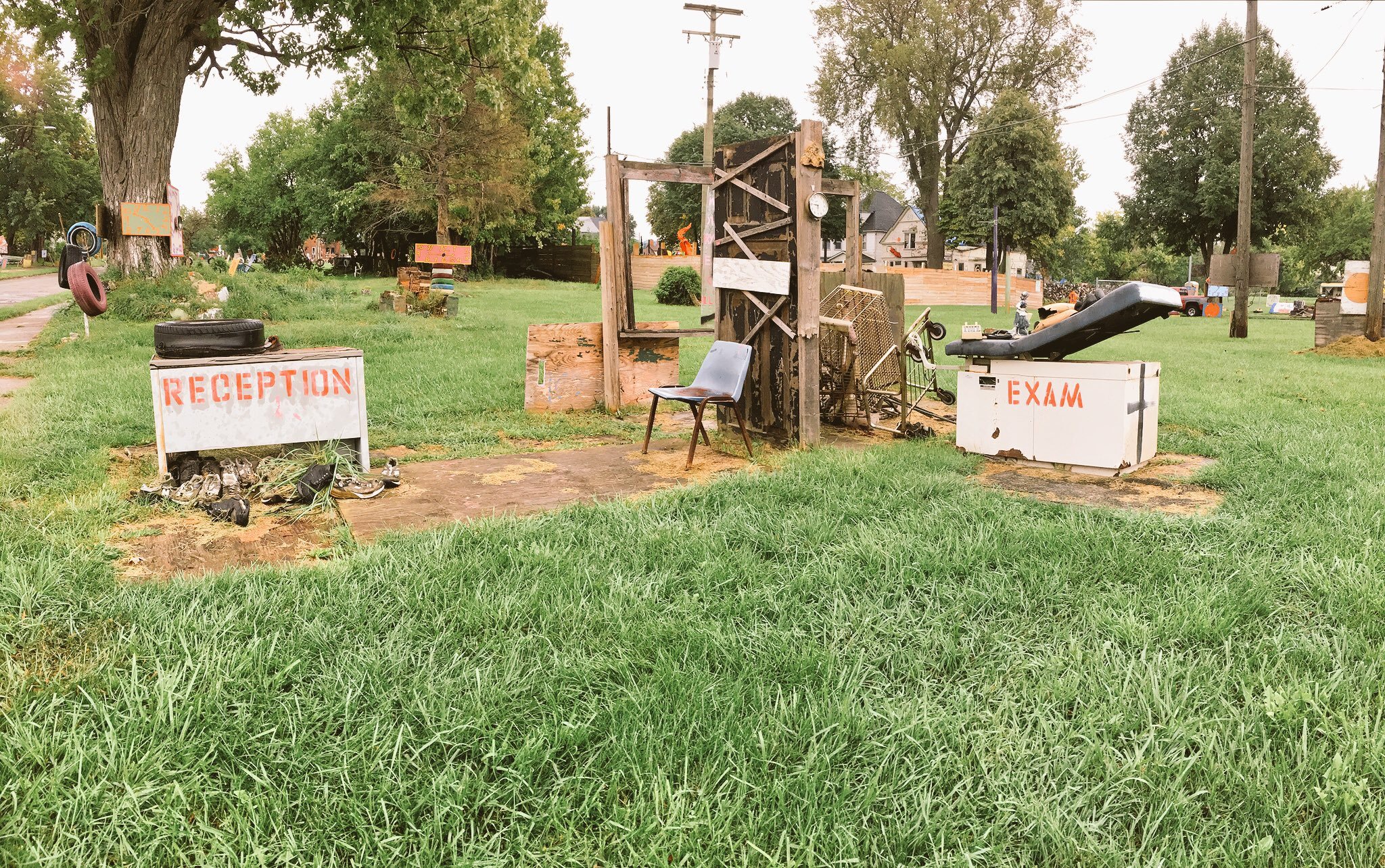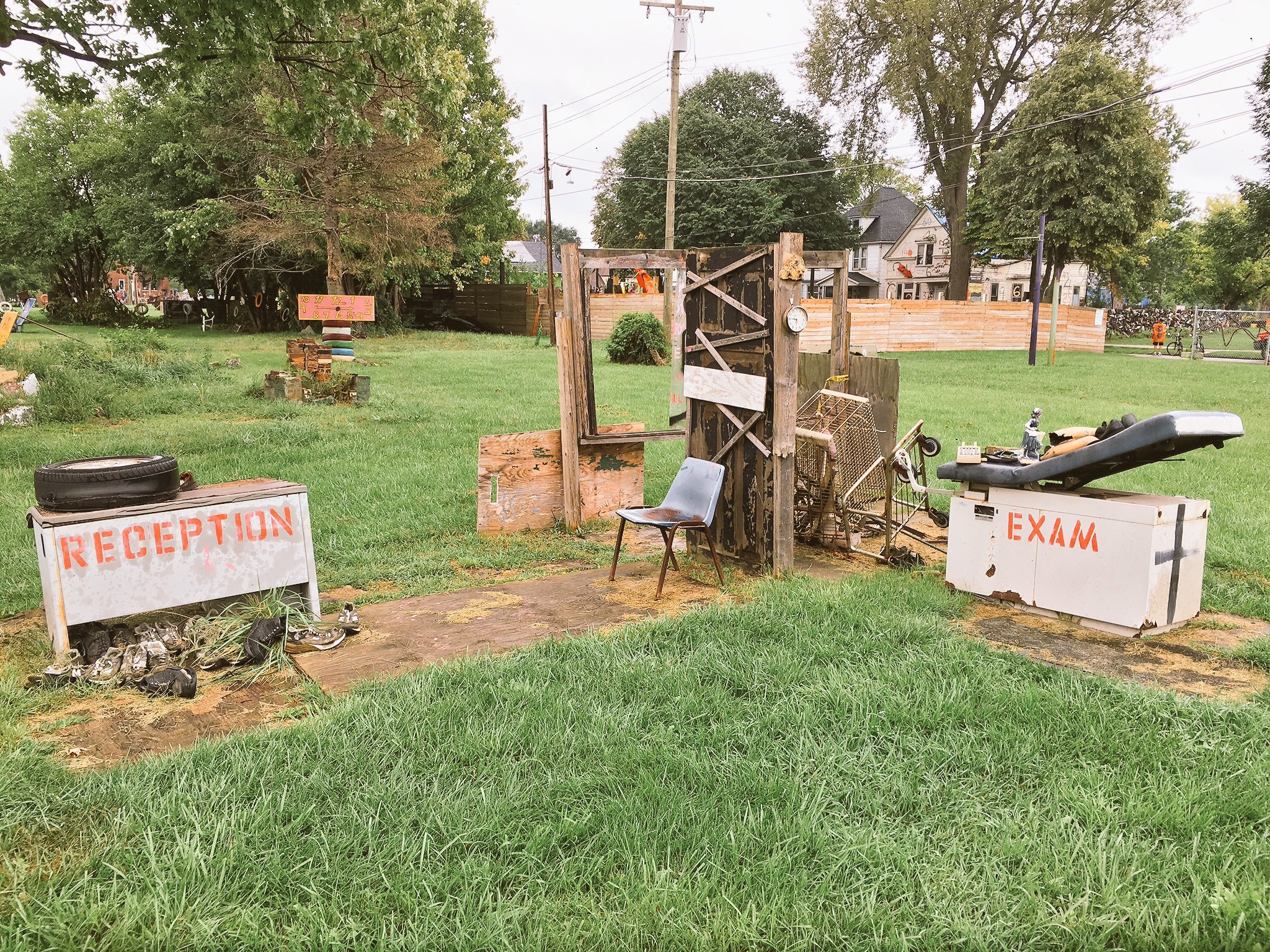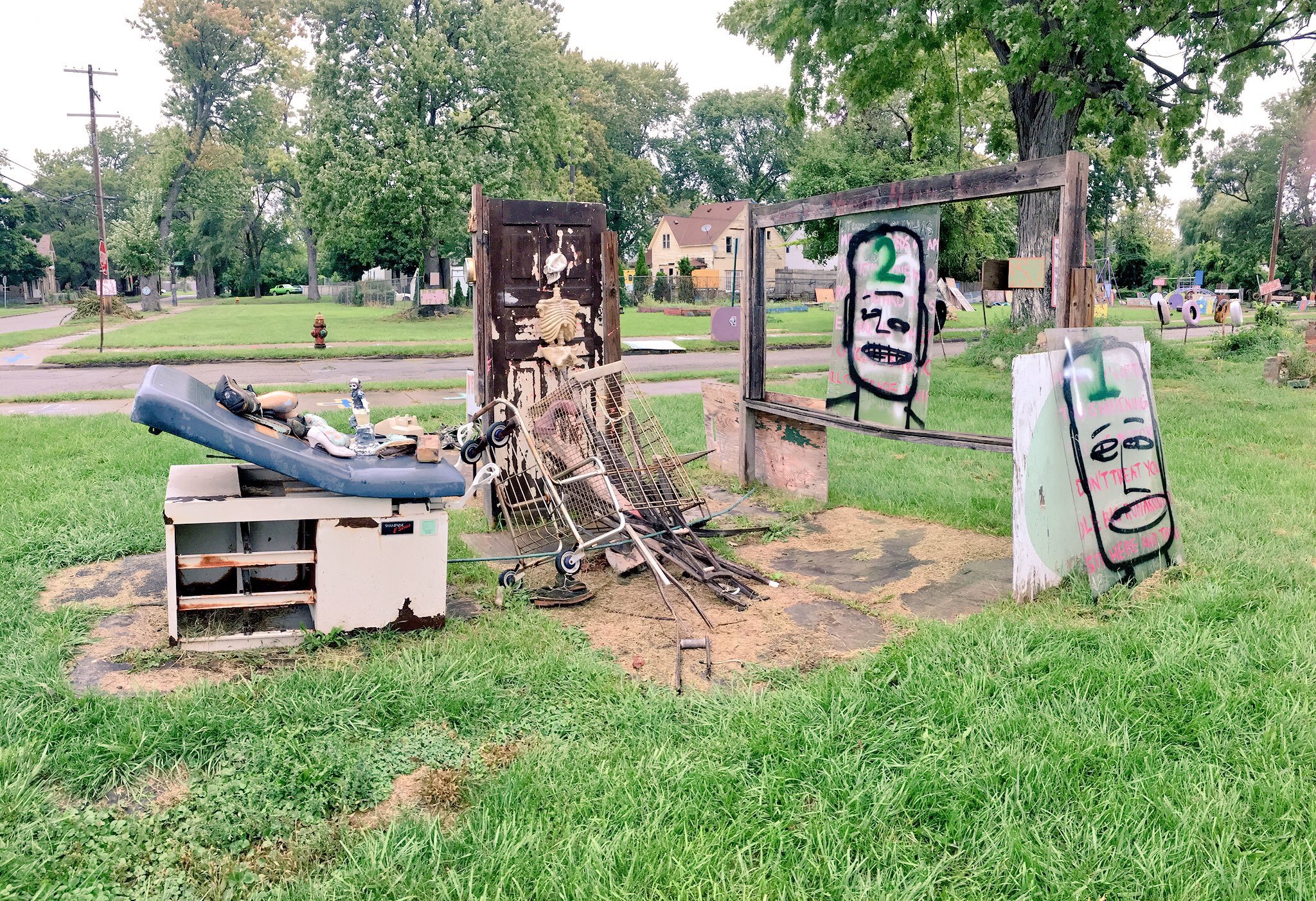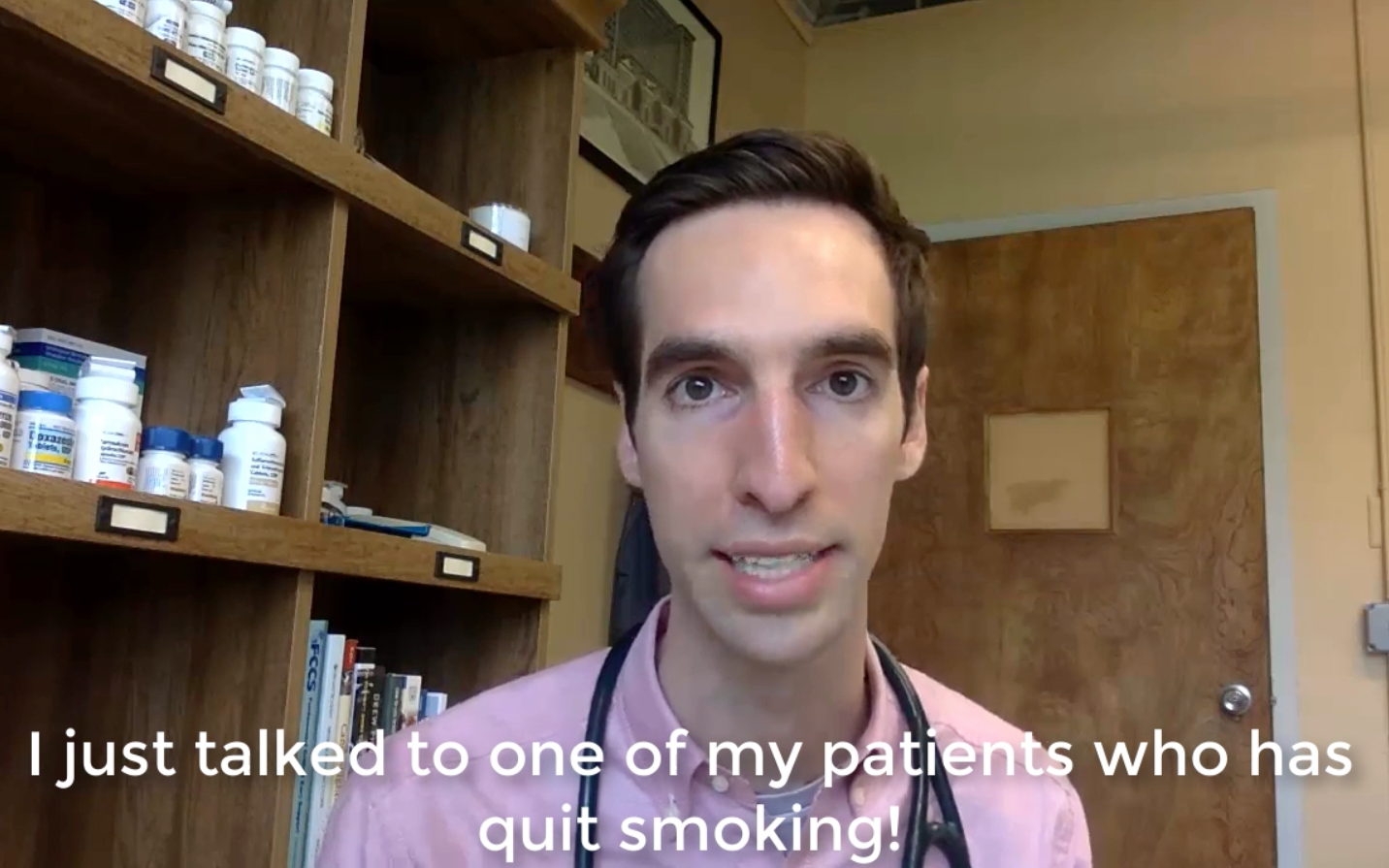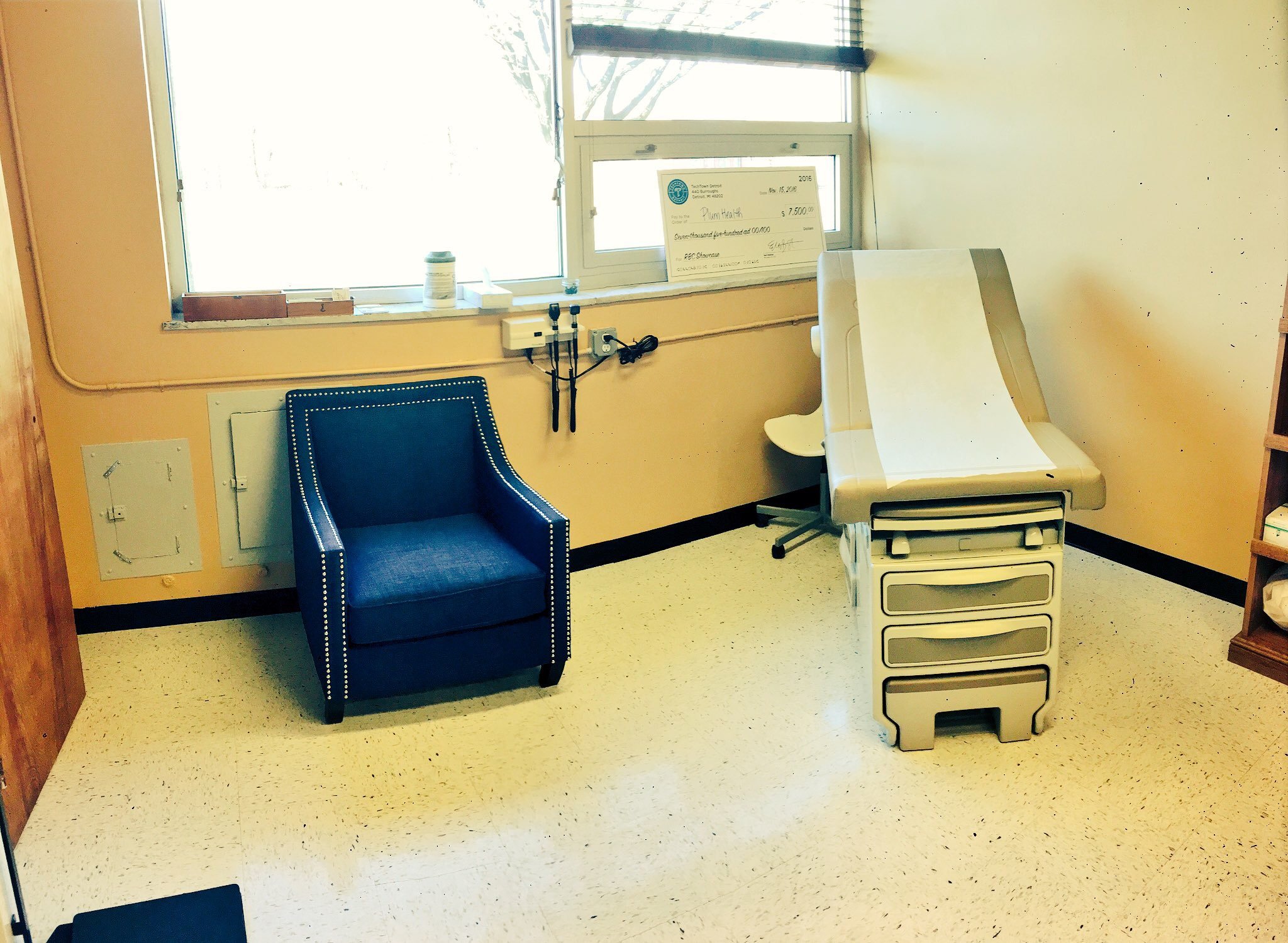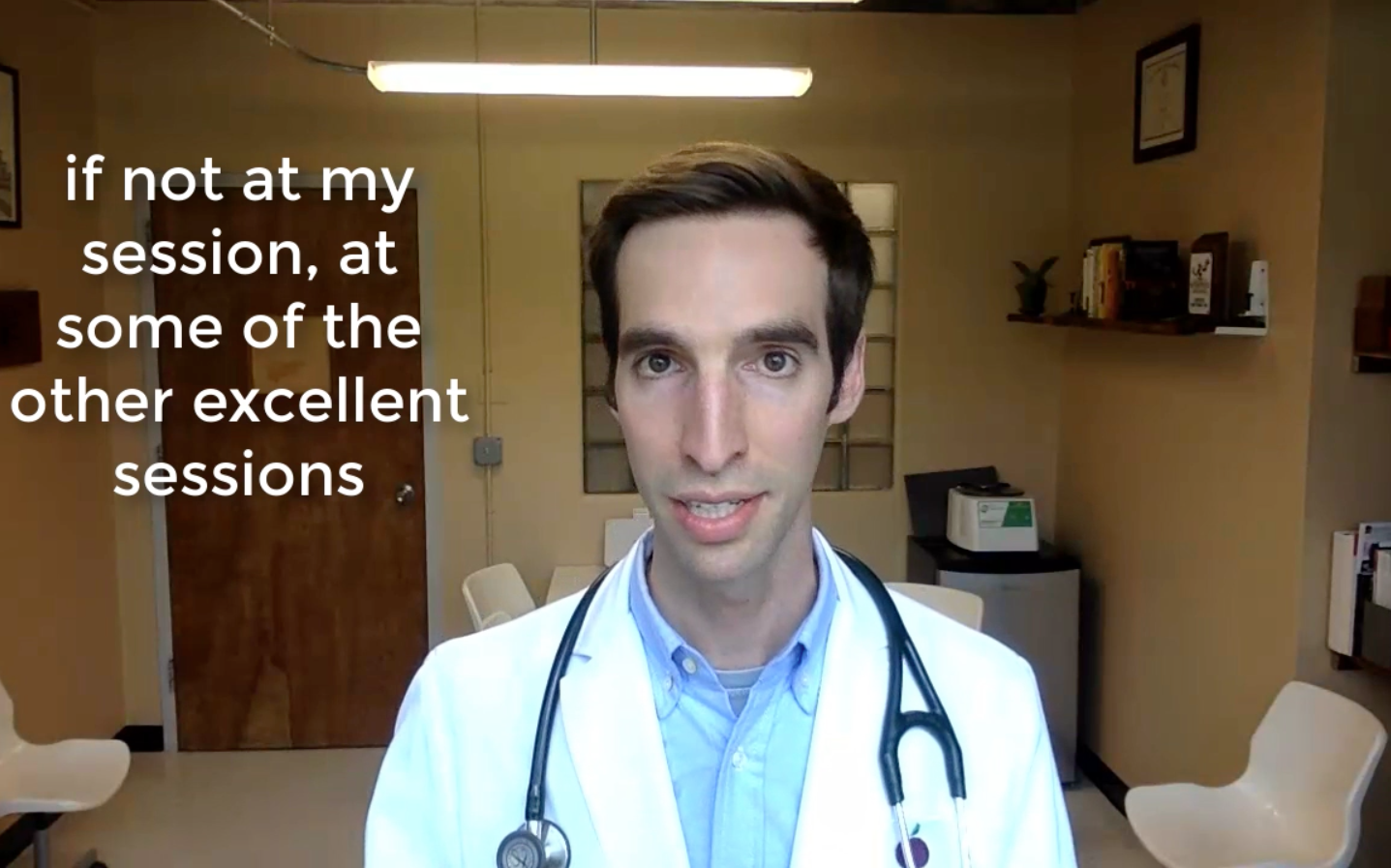Plum Health Blog
Limitless or My Thoughts on Optimizing Productivity
This week I watched the movie "Limitless" starring Bradley Cooper. The film follows a struggling writer who can't seem to get anything done. Even though he has a book deal, he hasn't written a page, not even a word. He finds himself lingering at the bar, talking about what he might do rather than just doing it.
Then, Bradley Cooper's character meets an old acquaintance who introduces him to a medication - NZT - that improves his brain's capacity to access information, concentrate and focus. Within 4 days, he finishes his book and within a month, he is the lead consultant on the largest corporate merger in American history.
I found it interesting that the very first thing Bradley Cooper's character does when taking this mental capacity-enhancing medication is to clean his entire apartment. He literally throws away all of the things he doesn't need, washes his dishes, organizes his book shelf, tweaks the layout of his apartment, and sets up a desk that is most conducive to being productive.
Hollywood hyperbole aside, I think this movie touches on some really important take-aways. First, how do you organize your life? What does your physical space look like? Are you able to be productive in that space? What about your schedule? Are you creating space in your schedule so that you can capitalize on your peak brain capacity, your peak productivity?
For me, I am most effective when I exercise first thing in the morning and then schedule myself 2 - 3 hours of un-interrupted work. I can really zero-in on the one or two most difficult tasks for the day. This is the time that I'm "in the zone" or experiencing a "flow state" - I am engrossed in my work and able to interact with complex thoughts and decisions.
The time of day and how you mentally prepare for your peak productivity may be different for you. For example, you may be more productive in the night-time hours, after everyone else in your family has gone to bed. The point is this: it is incredibly important to think critically about how you structure your day and your life for optimal productivity, and even happiness.
I believe that this has important applications for medical conditions, namely depression, anxiety and ADHD. Let's tackle ADHD, for example. With ADHD, the two mainstays of treatment are medications and cognitive behavioral therapy (CBT). And, in CBT, the focus is on time management, organization, and making short- and long-term plans.
Here's why CBT is relevant for patients with ADHD, taken from CHADD, the national resource on ADHD: "CBT is relevant for adults with ADHD in two ways. First, in recent years, CBT programs have been developed specifically for adults with ADHD. Some of these programs aim to help adults overcome their difficulties in everyday executive functions that are needed to effectively manage time, organize and plan in the short term and the long term. Other programs focus on emotional self-regulation, impulse control and stress management".
As for Depression, if you are dealing with depression, and you are not structuring your day to include exercise, you may be missing out on a powerful form of treatment. Exercise can be a powerful antidepressant. However, the evidence is limited at this time. According to an article in the American College of Sports Medicine's Health and Fitness Journal, "Only two studies, both from researchers at Duke University, compared the effectiveness of exercise with pharmacotherapy. No differences between exercise and antidepressant medication were noted".
Final takeaways, you have the power to improve your mood and your productivity by organizing your life. Think critically about how you structure your schedule, physical space, and mental space, and create your schedule around your peak productivity.
Thanks for reading, and have a great day!
- Dr. Paul with Plum Health in Detroit, MI
Detroit Homecoming: Seeing Two Sides
This past week, I attended two different events as a part of the Detroit Homecoming series. One was an official event with the well-to-do expats, and the other was an unofficial gathering of neighbors where a discussion was held about the foreclosure crisis.
The first event was Wednesday, September 13th at the corner of Dalzelle and 14th. There was a buzz in the air that was palpable. For the first time in decades, the Michigan Central Station was exuding signs of life, as the facade was being lit up with scrolling words. Phrases like "DETROIT HOMECOMING", "REINVEST", and "REIMAGINE" scrolled across the stations front face, broadcasting a message of hope to the community and region.
Check out this video from Nadir Ali, a local videographer, from the event that evening.
The invited guests from out of town streamed in, ready to hear from Mayor Duggan, Lilly Tomlin, etc... Across the street, on the corner of 14th and Dalzelle, neighbors gathered to discuss the foreclosure crisis. The event was orchestrated by Jerry Paffendorf of Loveland Technologies, and people shared personal stories as well as strategies to combat foreclosures in Detroit and beyond.
And, in the streets of Roosevelt Park, protestors shouted and chanted, making their voices heard about their discontent and growing concerns over foreclosures, blight, poverty, and now gentrification.
It was an interesting juxtaposition, to say the least - the wealthiest sons and daughters of Detroit returning home and being confronted by those left behind by an increasingly globalized economy, while the group at the corner of Dalzelle and 14th looked on and talked about foreclosures, problems and solutions.
The second event that I attended was an official Detroit Homecoming event held at "The Factory at Corktown," a new development owned by Bobby Buhl that bills itself as "a premier venue in the heart of Detroit's Corktown neighborhood."
In this setting, I was able to talk to some of the expats about health and health care in the City of Detroit. And the people I spoke to had genuine interest in the community and how to make Detroit a better place for all.
This seems like a no-brainer, but all of the people mentioned in this post - the wealthy expats, the neighbors talking about foreclosures, and the protestors in Roosevelt Park - are invested in Detroit and the future of this place, this City, and this Region.
I know that solutions to our problems will not be easy, but I believe that we can create a better future for Detroit and for our region if we continue to work together and engage in this type of discourse. I know that the conversations will be difficult, but we will be worse off if they are not held at all.
At the crux of the issue is this: how do we advance the interests of all Detroiters? How can we welcome outside investment and outside interest and the development that it may bring without displacing anyone or leaving anyone behind? How can we build upon what we already have without replacing what already exists?
I know these are deep thoughts, but I think these are questions worth asking.
Thanks for reading and have a wonderful day,
- Dr. Paul with Plum Health
A Golden Apple in My Office
This week, I was taking care of a family of 6 in my office! There was a lot of joyful movement and one of the toddlers grabbed an item from its resting place- it's an Apple, a Golden Apple, that I keep on my shelf and it's a reminder of my mission, vision, and values.
When I was in medical school at Wayne State University, I was awarded with the Golden Apple Student Award for having an understanding of the Art of Medicine as displayed by the care and understanding of patients. It was a tremendous honor, and it's something that I carry with me, as well as something that I want to give to my patients and reflect in my practice.
Often, my patients will ask me about the best course of action going forward, and sometimes the answer isn't always clear. You see, there's the science of medicine, the reproducible, empiric evidence with its best practices and treatment recommendations. These guidelines are important to know and important to follow in most cases. But, on the other side, is the Art of Medicine, and because every one is unique, an individual, with unique medical concerns, treatment choices aren't always clearly defined.
When difficult choices need to be made, I often ask my patients which course of action they'd like to pursue. This may be a unique aspect to my practice, but I know that it's important to engage in shared decision-making with the people that I care for. When decisions are made together, we can be on the same page about treatment, compliance to the plan is higher, and people feel like they have more control over the condition and situation.
Thanks so much for reading and have a wonderful day,
- Dr. Paul with Plum Health
Volunteer Doctor at Tour de Troit 2017
One of my favorite events in Detroit is the Tour de Troit, a friendly 25 mile bike ride through Detroit and some of its beautiful neighborhoods. For the last 5 years, I've been participating as a volunteer medic, starting during my medical school training and continuing through residency, and now as a doctor.
I love the ride because I get to see so many people who I know! There are so many people and businesses that support this ride and who make it a really special event. From the Great Lakes Coffee that's served with food from the Detroit Institute of Bagels, to the lunch after the ride from local restaurants, to all of the people from the community who come out and either volunteer or ride. It all adds up to a great time.
Biking is also a super healthy way to see the city, and during the ride we have police barricades and police escorts, so it makes for a very safe environment for everyone who participates. A big thank you to the Detroit Police Department for keeping everyone safe again this year!
When I talk about health, I'm not only talking about physiological health, but also social health - I believe that events that bring together people from different communities and backgrounds can serve to strengthen our region and make us better. That's why I love Tour de Troit, because it is this space where people from across Metro Detroit come together. For future events in this same vein, check out Slow Roll or Open Streets Detroit.
It's always a great ride, but it comes with a few injuries every year. This year the head count was about 7,000 riders and we had a handful of accidents and injuries to attend to throughout the day. There were about 20 of us medical volunteers, mostly medical students, and we delivered basic first aid for riders after minor injuries. For more major events, Emergency Medical Services were used.
So, with fall and cooler weather fast approaching, make it a point to get out today, tomorrow, and the next day on a bike ride or a walk or a run - this is a great time to be active and healthy, and your body, mind, and spirit will thank you for the effort.
Thanks for reading, and have a great day!
- Dr. Paul with Plum Health
Why It's Important to Have a Family Medicine Doctor in Detroit
Today I had the pleasure of speaking with Keith White of the Cancer Awareness Resource Network. We talked over the phone about his organization, the work we're doing with Plum Health, and the potential that we have to serve folks with cancer in Detroit and beyond.
Keith has had an amazing and inspiring journey. To read about him, check out what he wrote on his "about us"page. One thing Keith realized, though, is that even if folks have great health insurance, they may still have really high co-pays for doctor's visits and medications. He reached out to see what Plum Health could offer those with cancer and those in remission in his network.
Simply put, we can offer the best primary care experience in Detroit. What that means is that you have a Family Medicine Doctor or a Primary Care Doctor who is truly your advocate. I take my role seriously, and I will advocate for your health and wellbeing, your family and your finances while you confront cancer. How do we do this?
First, I focus on you and take a wholistic approach to your care. I have more time to spend with you, to get to know you and understand where you're coming from, what you're dealing with, and where you want to go with your life and your health. As your family doc, I will make sure that you're taking the right medications, that you are getting the right screening tests, and keeping up with treatment.
Second, I take care of folks in the context of their families and their communities. If there are emotional or familial stressors, we can talk about those and look for solutions together.
Third, I watch out for the financial wellbeing of my patients. This means that I make my prices clear and understandable, I don't charge co-pays for visits, and I give my members medications at wholesale prices.
Cancer and its treatment are hard enough, so when facing these difficulties, you want a primary care doctor who knows you well and who can advocate on your behalf.
Thanks for reading, and have a wonderful day,
Dr. Paul Thomas with Plum Health
The current look of our Plum Health Direct Primary Care office in Detroit, Michigan
Starting a Direct Primary Care Practice in Detroit: What Inspired Me
I initially discovered direct primary care while on a road trip in November 2012. I was driving back to Detroit from a residency position interview at the University of Minnesota. I believe it was a libertarian-minded podcast featuring an interview with Dr. Josh Umbehr, discussing his startup in Wichita, Kansas, called Atlas MD.
It was refreshing to hear a Family Medicine doctor speaking so passionately about saving people money, delivering better care, and practicing in a unique way. The message resonated with me, but at that time I was pursuing a faculty position at a residency program because I enjoyed teaching so much. Suffice it to say that I filed this “Direct Primary Care” concept in the back of my mind.
Between my second and third years of residency, I went to the Michigan Academy of Family Physicians (MAFP) annual meeting in Traverse City. It was July 2015. There I met Dr. Clint Flanagan of Nextera Healthcare in Denver, Colorado. He spoke unequivocally about the value of being a primary care doctor and the tremendous value that we provide for our patients. His passion for the profession also came through in a way that I hadn’t experienced before.
These two leaders in the field served as a contrast to the typically burnt out and grumbling physician that I had met thus far in training. Even the best doctors grumbled about paperwork, prior authorizations, late patients, packed schedules, and all of the other difficult parts of being a primary care doctor.
At that point, I knew that I would pursue an alternative practice model. It only made sense – less-than-fulfilled physicians practicing in a less-than-ideal system surrounded me and I knew that life could be better on the other side. Additionally, I always had this inner drive to deliver medicine in a more equitable and just system. Direct primary care seemed to align with my values as an individual and as a doctor, but I needed to dive deeper.
So, as an elective rotation, I drove out to Wichita and Denver, and spent a week learning from both Drs. Umbehr and Flanagan. I kicked the tires, took copious notes, and tried to bring the best of their practices to my community in Detroit, Wayne County, and Southeast Michigan.
Now it's September 2017 - almost 5 years after I had initially heard of "Direct Primary Care". Now, I'm living DPC every day, taking care of people of all ages and stages in my clinic in Southwest Detroit. I'm even caring for people while on vacation - I helped about 10 of my patients while I was traveling abroad over the last week.
I am able to do this - to be the doctor that I was meant to be - because I am a Direct Primary Care doctor. This post is about inspiration, and what inspired me, and what continues to inspire me.
I am inspired by the fact that I can help people with real health care needs either in my office or over the phone, or via video chat or email. I am inspired by the fact that I am able to serve people who haven't seen a doctor in years, because we've lowered the cost barriers and therefore have made our service more accessible. I'm inspired by the fact that we can do so much good in such a small space.
I'm also inspired by the potential for Plum Health to grow, and to serve more people in our immediate community and across the region. I'm inspired by the happy patients that I get to work with everyday.
I've had great mentors along the way, specifically from the pioneers in the Direct Primary Care world, and I'm grateful for their help in getting me to a successful and sustainable DPC practice.
Thanks for reading this reflection, and have a wonderful day,
-Dr. Paul with Plum Health DPC
Dr. Paul Thomas of Plum Health DPC, in the Plum Health office!
Wayne State White Coat Ceremony Speech
The White Coat Ceremony, a New Tradition
The annual White Coat Ceremony is a relatively new tradition at medical schools across the country. In order to convey the virtues of the profession - compassion, altruism, duty, honor, respect, and responsibility - Dr. Arnold P. Gold created the event.
The first White Coat Ceremony was held at the Columbia University College of Physicians and Surgeons in New York in 1993. Dr. Gold believed that students should declare their commitment to the profession and the virtues therein at the beginning of their medical school journey, rather than at the end.
Now, 97% of medical schools have a White Coat Ceremony. The Ceremony gives a clear set of guidelines for these doctors-in-training to follow, and students are able to accept the obligations of the profession and commit to upholding the high standards that come with the title of "doctor".
The Declaration of Commitment
I solemnly pledge myself to consecrate my life to the service of humanity;
I will give to my teachers the respect and gratitude which is their due;
I will develop my skills with conscience and dignity;
The health of my patients and myself will be my first considerations;
I will respect those things that are confided in me;
I will maintain by all the means in my power the honour and the noble traditions of the medical profession;
My colleagues will be my comrades;
I will not permit considerations of religion, nationality, race, party politics, sexual orientation, or social standings to intervene between my duty, my peers, and my patients;
I will maintain the utmost respect for human life and I will not use my medical knowledge contrary to law;
I make these promises solemnly, freely and upon my honour.
My Speech
First of all, it was a tremendous honor to be selected as the Keynote Speaker for the Wayne State University School of Medicine White Coat Ceremony for the Class of 2021. When I received the phone call to be the speaker, I was nearly speechless and unsure of my ability to live up to the expectations that come with this role. I needed 24 hours to think on the offer.
After talking it over with my wife, I decided that this was something that I could do, and that I had a lot to say about the opportunity before these students and the medical profession in general.
When I was getting ready for medical school, I read several books. I was to be the first doctor in my family and I had a limited perspective on the medical field, i.e. I had no idea what I was getting myself into.
One of the authors that stuck with me was Atul Gawande, a surgeon and writer out of Boston. He wrote about the appealing aspects of a career in Medicine: autonomy, complexity, and a direct relationship between effort and reward.
However, something was missing. For me, that something is happiness. You see, doctors struggle with professional burnout, substance abuse, and suicide. We can speculate about why, but I think it's some combination of consistent perfection, frustrations with the monolithic systems within health care, and a heavy workload. I didn't want to get into the darker side of these concerns during the White Coat Ceremony, but they definitely influenced my speech.
Because of these concerns and these problems in the medical profession, I believe that we need to focus on creating a culture of happiness in the medical field. How can we train doctors to be happy? How can we create hospital systems, clinics, and insurance policies that foster physician wellness and happiness?
I don't know if there are great answers to these questions, but it's something that I have thought about deeply. For me, creating a happy practice involved creating a membership model for health care via Plum Health. That works for me, but during my speech, I encouraged these medical students to explore the profession fully and to find their own means of happiness within it.
I wish the very best to the WSU SOM Class of 2021. I know that these students will be a part of a generation of doctors that revolutionizes the way we deliver high-quality, compassionate health care. Without further ado, my speech:
Thanks for reading and for watching, and have a wonderful day,
- Paul Thomas, MD | Doctor with Plum Health in Detroit, Michigan
Wayne State University School of Medicine published an official write-up about the event on their webpage, here.
Hatch Detroit 2017 Application
Today, we submitted our application for Hatch Detroit 2017. Our company is called Plum Health DPC and we deliver affordable, accessible healthcare services in Detroit. We offer street level, neighborhood-based medicine in a city with very few primary care medical resources. There are roughly 50 - 100 primary care doctors in a city of 683,000 people, or roughly 1 doctor for every 6,000 - 12,000 Detroit residents.
This lack of access to primary care has a net negative effect on the city. Medical problems go untreated, worsening the burden of disease in the city for all maladies from diabetes, to high blood pressure, and cancer. Residents who cannot get in to see Detroit-based doctors must drive to the suburbs for services, causing inconvenience and costing the city in terms of tax revenue.
The Hatch Detroit 2017 grant is an opportunity for $50,000 in cash, along with support services ranging from legal to accounting, and beyond. With this $50,000, we would be able to hire a second doctor as soon as possible. This has an immediate benefit for the community in that we can get another doctor in Detroit to provide holistic and comprehensive primary care services.
We believe that primary care services are invaluable for a community, especially in a City like Detroit. The type and amount of value that we give to the community will exceed the initial investment from this grant competition, should we be so fortunate as to be considered for the prize.
In effect, this $50,000 yields immediate impact. First, the Detroit community gets a desperately-needed primary care doctor in a street-level, community-facing medical practice. More screening tests are ordered, more colon, lung, prostate and breast cancer cases are caught early. More diabetic and hypertensive patients have their blood sugar and blood pressures controlled, resulting in lower heart attack and stroke rates in the years ahead.
I know it's not super sexy! But it is vital for a functioning city and truly revitalized neighborhoods. In keeping with the Mayor's vision of 20 minute neighborhoods, having a neighborhood family medicine doctor can only serve to strengthen Detroit's neighborhoods and the future of Detroit in general.
Thank you for reading and for watching,
Dr. Paul Thomas with Plum Health in Detroit, Michigan
Plum Health July Update
The last 3 weeks have been a whirlwind! About 3 weeks ago, we were featured on Channel 4 news in Detroit, aka WDIV. Within the week, we had roughly 2,000 unique page views, 100 phone calls, 200 emails, and 30 - 35 new sign ups for our service. It was an overwhelmingly positive response.
Our focus has been to take really good care of the new folks who signed up while maintaining our excellent standard of care for the people already signed up for our service. Our focus is on quality, not quantity.
Also, I attended the AAFP's Direct Primary Care Summit in Washington DC and met with some legislators and legislative assistants to discuss DPC and what we do at Plum Health in Detroit. This was a great trip and a great chance to talk with legislators about what we do at Plum Health and in the Direct Primary Care model, but also talk with our DPC colleagues.
Furthermore, we continue to save our members significant amounts of money on their medications, labs and imaging. We had a person sign up who was charged $100 for 10 tablets of valacyclovir (Valatrex). This medication is used to treat genital herpes. At our clinic, it costs about $2.35 for 10 tablets because it costs $0.23/pill.
Thanks for reading and have a great day,
Dr. Paul Thomas with Plum Health DPC in Detroit, Michigan
Plum Health featured in Good Life Detroit
This week, Plum Health DPC was featured on the blog Good Life Detroit. Jennifer is the creative spirit behind Good Life Detroit, and she did a fantastic job writing about our clinic and Direct Primary Care in general.
I really appreciated her perspective as a mother - she notes in the article that she has 5 children! - and that she paid $125 for a 20 minute doctor's visit for one of her children. Contrast that with our clinic, her child could have been seen for a full year for $120, with as many visits as needed included in that price.
This is how we make our primary care services valuable for the community that we serve. If you were not aware, Detroit is a large, low-income population. We recognize this as a fact, and have adjusted our pricing to be accommodating for the community that we serve.
Another great point that she brought up in the article is the frustration that people can experience when trying to reach their doctor! Sometimes reaching the doctor can be like pulling teeth. She puts it more eloquently, here:
"Another great benefit of Plum Health Direct Primary Care is patients have the opportunity to speak directly to Dr. Paul without the hassle of long wait times and call screenings. Instead of having to go through a series of steps just to talk to their doctor, patients can call, text, or email Dr. Paul directly. In some cases, some doctors require you to leave a message with the office staff for a callback.
"Most of the time the office staff member screen’s the doctor’s calls and you have to tell the staff member exactly what it is you need or what your question is. Then you wait for the doctor to call you back, which can be anywhere from the same day or one to two days later, all depending on the doctor’s schedule.
"Members of Plum Health have Dr. Paul’s cell phone number and email address. They can reach him anytime they need to ask a question in regards to their health."
There are several other great points that she makes throughout the article. I was really impressed at her depth and thoroughness. I also appreciate her helping to get the word out about affordable, accessible health care in #Detroit. We're trying to serve as many folks who need this type of care, and articles like these help us to reach communities outside of our circle of influence.
Thanks for reading and have a wonderful day,
Dr. Paul Thomas with Plum Health Direct Primary Care
Plum Health Direct Primary Care is in Detroit, Michigan. We practice old-fashioned family medicine, but we use technology to make ourselves more accessible to our patients when they need us! I love this graphic that Jennifer at Good Life Detroit created for us!
I also really liked this graphic that Good Life Detroit made about our pricing tiers at Plum Health DPC - really easy to read and understand!
Street Medicine Detroit
This month I had the opportunity to volunteer with Street Medicine Detroit, an organization dedicated to helping homeless people in Detroit with their medical care. This was an organization that I volunteered with and supported during its early days at Wayne State University School of Medicine.
The service is run by WSU medical student volunteers and they go out to different locations across Detroit and assist those who need medical care. This can be done on street corners, in soup kitchens, homeless shelters, and churches across the city.
This month, I met up with the volunteering students at Manna Community Meal to deliver health care services. This is in the basement of St. Peter's Episcopal Church in Detroit's Corktown neighborhood. It was a great way to give back, and if you want to support Street Medicine, they take donations at their website, here.
Talking with a group of medical students while volunteering with Street Medicine Detroit at St. Peter's Episcopal Church in the Corktown Neighborhood of Detroit, Michigan.
How many calories should I eat each day?
How many calories should I eat each day? This is a question that my patients commonly ask of me and there is not a one-size-fits all answer. There are several steps to finding the appropriate calorie intake on a daily basis. One of those steps is calculating your basal metabolic rate.
Once you know your basal metabolic rate, you can add in the amount of calories that you burn each day from exercising. If you jog for 30 minutes each day, you may burn about 200 calories. If you do yoga for 30 minutes each day, you can burn around 150 calories.
Take the number of calories burned in the day and add that to your basal metabolic rate. If you have a reasonably stable weight, you can estimate that you are taking in about that calorie total in your diet.
Then you have to consider your weight goals. Are you trying to lose weight or gain weight? If you seek weight loss, then removing 100 - 200 calories from your diet each day may be a safe number for you to achieve your goals. Remember, in general, it is unsafe to lose more than 1 - 2 pounds each month.
Using an app like MyFitnessPal can be really helpful, especially if you are meticulous about documenting the foods that you consume and workouts that you perform each day. If you're a patient with Plum Health, I will review your data in the App and then we can make better decisions about dietary changes and exercise regimens.
In general, my opinion is more about eating healthier foods, not necessarily less food. I recommend eating foods discussed in "The End of Dieting", found on Amazon here: http://amzn.to/2snb78z
In it, Dr. Fuhrman recommends eating GBOMS, Greens, Beans, Onions, Mushrooms Seeds and Nuts. The point is to get more nutrients/calorie and he sums it up this way: Health = Nutrients/Calorie. The more nutrients per calorie, the better your health.
Kale, Bok Choy, Quinoa, Blueberries, Almonds, Walnuts, Wild Caught Salmon are a handful of examples of highly nutrient dense foods! This would be in contrast to Iceberg Lettuce, bananas, peanuts, and ground beef - these foods are less nutrient dense then the aforementioned foods.
Making healthier food choices, especially those foods that are nutrient dense, can help you to be healthier. Further, if you make organic selections, you will have less toxins in your body. Physician and author Dr. Mike Dow discusses the importance of eating organic foods in his book The Brain Fog Fix.
I hope that this is a helpful and comprehensive answer for you! Thanks for reading, and have a wonderful day,
- Dr. Paul Thomas with Plum Health Direct Primary Care in Detroit, Michigan
Plum Health Advocating for Direct Primary Care in Washington DC
This week we're in Washington DC, advocating for affordable, accessible healthcare services on Capitol Hill. We're meeting with the offices of Senator Stabenow, Senator Peters, Congresswoman Lawrence, and Congressman Conyers. This is one of those moments where I feel like the mission that I'm on is bigger than the community that I live in and bigger than my city and my state. Access to affordable health care is a National concern and our representatives and their office personnel have given us open ears.
On Thursday morning, I boarded a plane to DC. That day, I met up with several of my Direct Primary Care colleagues at the DPC Summit 2017. We took a bus from our hotel in Crystal City to the Dirksen Building on Capitol Hill. We received instructions from our advisors about how to talk to our legislators: be authentic and tell your story.
Here's the video I shot in the Detroit Metro Airport prior to taking off:
After our briefing, I was able to meet up with legislative assistants from the offices of Senator Stabenow, Senator Peters, Congressman Conyers, and Congresswoman Lawrence. Here's a video I shot inside the atrium of the Hart Senate Office Building:
The Hart Senate Office Building houses the offices of Senator Peters and Senator Stabenow. I was bouncing between this building and the Rayburn House Office Building, where Congresswoman Lawrence and Congressman Conyers have their offices. Here's a video I shot just outside of the Rayburn House Office Building:
Thanks for reading and watching, and have a great day,
- Dr. Paul Thomas with Plum Health DPC in Detroit, Michigan
Local Detroit Doctor on Channel 4 News WDIV
This week, Plum Health Direct Primary Care was featured on Channel 4 News, station WDIV, in Detroit, Michigan. Plum Health was billed as a service that is saving people "thousands of dollars". While we are able to save folks money on their health care needs, the reason why we do this goes much deeper.
Our mission is to provide affordable, accessible health care in Detroit and beyond. We build relationships with our members and make ourselves available whenever our patients are in need. We make the prices for all of our services transparent so that you can understand both the cost and the value. Here's what WDIV wrote on their webpage:
DETROIT - Dr. Paul Thomas, who runs the Plum Health Clinic in Detroit, might just have a plan to revolutionize healthcare -- it's called Direct Care.
Thomas said everyone needs health insurance in case of catastrophic illness or injury, but he quickly added, "Basic healthcare outside a hospital is actually low cost."
When was the last time "low cost" and "healthcare" showed up in the same sentence?
A hospital test for cholesterol can cost $120; Thomas charges $6.50. A month's supply of Prilosec costs about $17 at the pharmacy, Thomas' clinic members pay 96 cents for the same prescription.
"The more money the insurance companies touch, the more that sticks to their hands," Thomas said.
Thomas argues that Direct Care removes the profit-takers between your dollars and your doctor, and makes affordable healthcare a reality.
I am deeply grateful for the coverage, and am deeply grateful to be a physician taking care of people's medical needs. Please let me know how I can be of service to you, and thank you for reading and watching.
- Dr. Paul Thomas with Plum Health Direct Primary Care
Primary Care Clinic in Detroit
When I was a first year medical student, I worked with a group of my fellow medical students to build an outdoor medical clinic. We wanted to raise awareness about the lack of primary care services in Detroit, and we accomplished this by constructing an outdoor medical clinic.
Currently, there are roughly 50 - 100 primary care doctors in the City of Detroit. This equates to about 1 primary care doctor for every 6,000 - 12,000 residents, which is horribly underserved. In the future, I would like to see 1 primary care doctor in every single Detroit Neighborhood, from East English Village to Ford/Wyoming, from Old Redford to Lafayette Park.
Having community primary care doctors creates a tremendous amount of value for the surrounding neighborhood - that doctor becomes a go-to person for folks who need health care and even emotional support.
However, the current reality in Detroit is that folks either don't have access to a primary care doctor or are driving to the suburbs for their care. To illustrate that lack of primary care services, our group of medical students built an outdoor clinic as a part of the Heidelberg Project on Detroit's East Side or what you may call the McDougall Hunt Neighborhood. Of course, we had the approval of Tyree Guyton, who checked in on our work that day, and we also received some press from the Detroit Free Press and the Wooster Collective out of NYC.
It was a simple clinic, with a reception desk, a door frame, a door, an exam table, and some chairs. On the door, we wrote all of the barriers to accessing health care services in Detroit and in the Nation. This was in 2009, when the debate over the Affordable Care Act was raging.
I visit the location periodically, to see how it has changed over the years. The last time I visited the site was in September 2016 during the Tour de Troit, an annual bicycling event that takes riders around the city. Someone had added a skeleton and some body parts, and it looks like Tyree made his signature drawings of faces on our plexiglass wall.
Plum Health may be in its infancy, but I know that we are already filling a need in the community in terms of primary care services. We recently surpassed 100 members and continue to grow, adding new members each week. We've taken care of newborns, toddlers, teens, and adults, and have addressed conditions ranging from sore throats to cancer.
As I continue to serve in the community, I hope to live up to the ideals that I put forth in this work of public art, to be the kind of community doctor that addresses the lack of access to health care in Detroit. I will also work to inspire the next generation of Family Physicians to take the leap into private practice in a community-based setting.
Thanks for reading, and have a wonderful day,
Dr. Paul Thomas with Plum Health DPC
Medication Price Comparison in Detroit
As a part of our service, we do free consultations for folks struggling to pay for their medications. Medication pricing is a hot topic in the health care field and overall health system - we've all heard about drug companies raking in huge profits on drugs that used to cost just a few dollars.
I bring this up because real people in our community are struggling to pay for their blood pressure meds, diabetes meds, blood thinners, and other pharmaceutical products. Even worse, they are paying inflated prices through the "retail pharmacy" like CVS, Meijer Pharmacy, or Walgreens.
We give folks free consultations at Plum Health, and a big part of this is price checking their medications. Today, I had someone in the community reach out to me to ask for a price check on a whole list of medications that they take. Here's what we found:
DRUG LIST PLUM HEALTH Price/pill, Price/month Insurance price/month
Atenolol 25 mg $0.018/pill or $0.54/month $12.99/mo
Carbidopa/Levodopa 250/10 $0.096/pill or $2.88/month $47.80/mo
Finasteride 5mg $0.073/pill or $2.21/month $15.40/mo
Flomax 0.4 mg $0.11/pill or $3.40/month $62.75/mo
Metformin 1000 mg $0.0129/pill or $0.38/month $12.99/mo
Levothyroxine 50 mcg $0.27/pill $8.25/month $33.67/mo
Plavix 75 mg is $0.06/pill $1.92/month $12.99/mo
Brilinta 90 mg is $5.54/pill $166.20/month $999.35/mo
It's eye opening, even after doing this type of medical care for the last 8 months, to see these prices side by side. The left hand column has the drug name, the second column has the Plum Health price per pill, the third column has the Plum Health price per month, and the final column has the insurance-based price per month.
Again, this gets at the main principle: if you use a third party payment system to purchase things in the market place, the prices become inflated. However, if you buy things directly from vendors in the market place using your own money, costs tend to be less. We are able to get these low prices because we buy medication in bulk from whole sale medication suppliers.
If you have any questions about medication prices, please feel free to call us at 313.444.5630. We routinely save folks about 50 - 90% on their medication prices. In the example above, this is about how much this person will save.
Have a wonderful day,
Dr. Paul Thomas with Plum Health DPC
Opinion Published in the Detroit News
Our opinion regarding Health Insurance and Health Care was published in the Detroit News last night, and it is currently on the front of the Opinion Page!
Our opinion made the top of the page for the Detroit News Opinion section on June 5th 2017.
Here's our opinion in full:
Health insurance does not equal health care. As Americans, we often conflate these two entities. But they are in fact separate.
Health care is when you see your doctor. They listen to your story, empathize, perform a physical exam, make a diagnosis, and discuss treatment options. They can also order tests and give you medications. The compassion, the sincerity, the relationship — that’s health care. Health insurance is what covers you in the case of a medical catastrophe, like if you’re involved in an accident, have a heart attack or a stroke. Health insurance is a financial tool to prevent you from going bankrupt in case these catastrophic events occur.
These may seem like obvious statements, but we’ve grown accustomed to a system in which health insurance covers everything, from flu shots to ICU. This may not be a terrible thing; we all need flu shots, and some of us may end up needing ICU care. The problem exists in how we pay for these services.
If we continue to ask insurance companies like Blue Cross Blue Shield and government entities like Medicaid and Medicare to pay for all of our health care services, from blood pressure medications to cardiac bypass surgery, costs will continue to be inflated.
So if you’re paying $10 for your lisinopril each month, know that it actually costs $0.37. If you’ve paid $120 to check your cholesterol this year, know that it actually costs about $6.55. If you’ve ever paid $150 for a chest X-ray, it actually costs about $40. When we use our insurance cards to pay for the basic, routine health care services, prices are inflated. Fortunately, we now have a choice, an opportunity to use free market principles to save money on our health care services. More Direct Primary Care clinics are popping up in Michigan and across the nation.
Direct Primary Care doctors ask that patients pay a monthly membership, which allows them unlimited visits with their doctor and the ability to call, text or email the doctor any time. These doctors also provide wholesale medications, at-cost labs, and at-cost imaging services. By cutting out the middle man and asking consumers to pay for their basic services, the cost of these basic services decrease. Typical savings for medications, labs and imaging services range from 50 percent to 90 percent.
Ideally, people will pair DPC services with a health insurance plan that fits their needs and their budget, and covers them in case of a catastrophic event.
Paul Thomas, M.D., is a family doctor at Plum Health Direct Primary Care.
A screenshot from our Opinion in the Detroit News on June 5th, 2017.
Thank you for reading and have a wonderful day,
Dr. Paul Thomas with Plum Health Direct Primary Care in Detroit, Michigan
How to Quit Smoking in Detroit
The adult smoking rate in Michigan is 20.5%. So, of the Michiganders over the age of 18, roughly 1 in 5 are smokers and that translates to 1,557,000 smokers in the State of Michigan. Among the United States, Michigan has the 9th highest smoking rate among adults.
This is unfortunate because there are many adverse effects of smoking, from increasing the risk of heart attacks and strokes to increases in the rates of head and neck cancers and lung cancers.
However, there are effective treatments that can help you quit smoking, and once you quit smoking many health benefits can be realized, from lowering your blood pressure to decreasing your risks of cancer.
This week, I've had a few people ask for help in terms of smoking cessation, and I am happy to provide that type of help. In fact helping people to quit smoking has some of the best patient-oriented evidence in medicine. Full stop.
Logistically, I would have you come in for an appointment. We would talk about where you are - pre-contemplation, contemplation, or ready to quit aka "quit mode". Then we'd review your medical history, current medications and any pertinent health-related issues. We would then formulate a treatment plan based on you as an individual.
In the person discussed in this video, we used Zyban or Wellbutrin or Bupropion (all different names for the same medication). This is effective in reducing the cravings that people feel for cigarettes. Then, we set a quit date. This is 1 week after starting the Zyban (bupropion).
After the quit date is reached, nicotine replacement therapy is used to tamp down hour-to-hour cravings. This can be in the form of a patch or gum or lozenges. Again, we personalize the method based on your preferences.
Let me know if you'd like to start your journey to better health with Plum Health, you know that you can reach me through our contact page or by phone, 313.444.5630.
Sincerely,
Dr. Paul Thomas with Plum Health DPC
Direct Primary Care Doctors Have More Time
Have you ever had this experience: a doctor tells you that you have condition "X" with treatment "Y", they then proceed to leave the room. A few moments later, the medical assistant hands you a pamphlet explaining condition "X" and treatment "Y", saying "thank you so much and have a great day"?
Questions start to pop in your head - do they know that I've already tried medication "Z"? What are the common side effects of treatment "Y"? Perhaps you've then asked the medical assistant, who then tries to pull the doctor out of the next patient's room.
This can be extremely frustrating, and for good reason. When you see the doctor, you want to have a plan. Further, you want to understand this plan, the side effects of treatment, the potential costs involved, and other options if this option fails.
Direct Primary Care doctors have more time to spend with their patients. We use this time to explain treatment plans, from why we chose a specific medication to what you should expect and when it's time to make that referral.
As an aside, I was discussing this with some of my Direct Primary Care doctor colleagues: should we be sending information to our patients via digestible video segments?
My answer is as follows:
Should Direct Primary Care Doctors make videos for their patients? In short, maybe. If you are consistently repeating information for your patients, it might be a good idea for you to make a short "explainer" video. For example, the difference between strep throat and a viral sore throat or a preferred diet method, or what to do in the case of a tick bite.
If you are seeing common ailments, it may make sense to make videos explaining the symptoms, but you became a Direct Primary Care Doctor for a reason! You wanted to have more time to discuss issues with your patients, more time to explain why you are using that medication or why you are pursuing that course of action.
It would make more sense to make videos for a larger health system. If the videos are really high quality, the doctors who have less time to explain themselves can use them to give patients the information that they would want to convey themselves, but don't have enough time to convey.
Thanks so much for reading, and have a great day,
Dr. Paul Thomas with Plum Health Direct Primary Care
Detroit Startup Week 2017
Detroit Startup Week 2017 will begin on Monday May 22nd!!! It's going to be a great week of stories, panels, and information sessions about starting businesses, large and small. It will also provide entrepreneurs with an opportunity to network and learn from eachother.
This year, I was selected to give a presentation about starting a business in one of Detroit's neighborhoods, Southwest Detroit. I'll be sharing some of my experiences and I hope you can come out to the session, the link is here.
From their press release: "Startup businesses of every type and stage are invited to over 100 completely free events that are designed to support startup growth and build a stronger business ecosystem in Detroit."
In the session, I will be talking about how we started Plum Health, some of the mistakes that we've made, some of the experiences that we've had, and some of the support systems in Detroit that has allowed us to be successful.
If you're contemplating starting a neighborhood professional service in the City of Detroit or elsewhere, I hope that my session will be extremely helpful for you.
Thanks so much for reading, and I look forward to seeing you at the Masonic Temple next week!
- Dr. Paul Thomas with Plum Health Direct Primary Care










